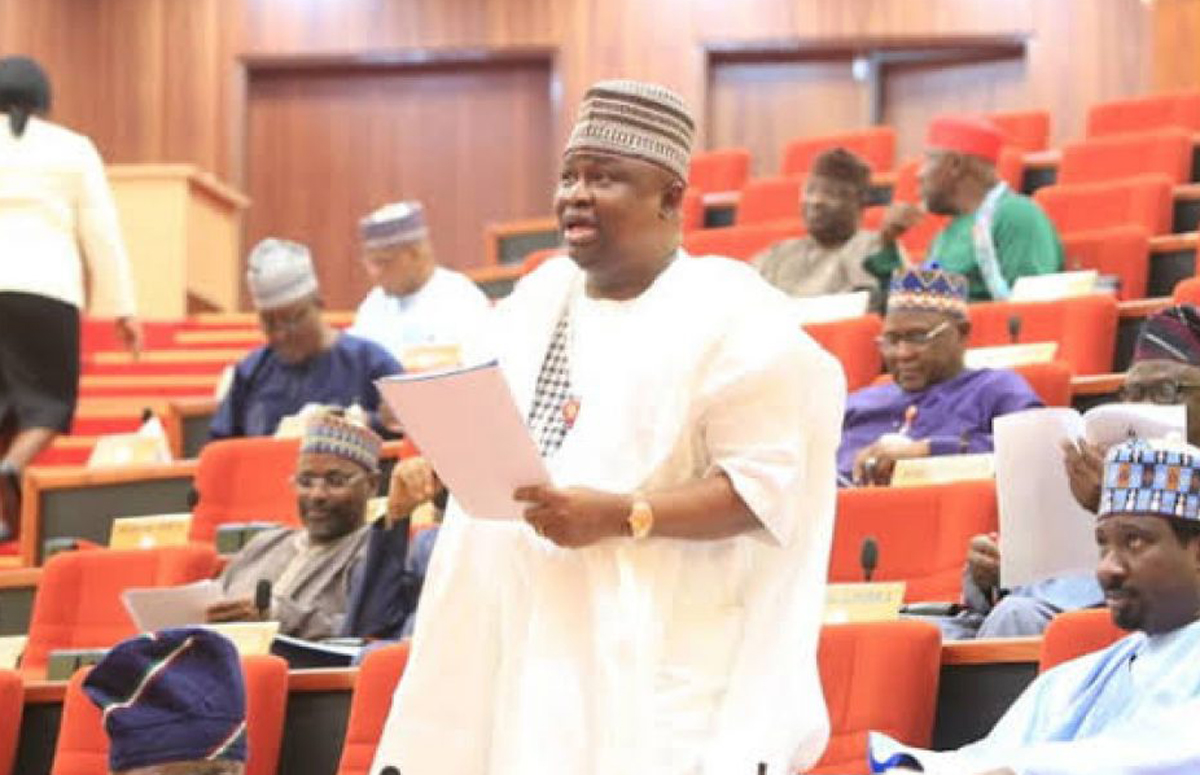The Senate is set to advise the Federal Ministry of Finance, Budget and National Planning to exclude 60 federal agencies from getting allocation from the national budget, starting from next year.
The agencies include Nigeria Customs Service, Federal Inland Revenue Service, Security and Exchange Commission, National Broadcasting Commission and Oil and Gas Free Trade Zone Commission.
The move was due to the view that the agencies generate enough revenue to fund their overheads and payment of salaries, and would therefore not need to be funded from the national budget.
There are indications that the Joint Committee on Finance and National Planning had concluded plans to include the proposal in its report which would be submitted to the Senate at plenary on resumption on September 15.
The joint panel on Tuesday concluded a five-day interactive session with the various Federal Government revenue generating agencies based on the 2021-2023 Medium Term Expenditure and Fiscal Strategy Paper.
The Chairman of the joint committee, Senator Solomon Adeola, told the heads of the agencies after the session that many of them had no business receiving allocation from the federation account.
He said the Senate would work out an arrangement to amend the Fiscal Responsibility Act that would stop the agencies from spending the money they generate as they pleased.

He stated that some of the agencies like the Oil and Gas Free Trade Zone Commission had willingly pulled out of being funded from the federal budget.
He stated, “We have invited all revenue-generating agencies and ministries that are directly affected to ask questions bothering on the document before us and to deliberate on how we can improve the revenue of the Federal Government.
“From what we have seen and witnessed, it goes to show that we have a lot of work to do in the areas of ensuring that all government revenues get to the coffers of the government. Frivolous expenditure being used to take away the revenue will be blocked.
“This is just the beginning of good things to come. Once this has commenced, we would have a lot of savings and seriousness on the part of the government agencies.”
“With the repositioning that we have started, we will ensure that all revenue-generating agencies play their critical roles in supporting government’s programmes and policies,” he added.
READ ALSO: Don’t reduce aviation budgetary allocation, Sirika begs NASS
The Director-General, Bureau of Public Enterprises, Alex Okoh, had told the Senate Committee on Privatisation in October 2019 that 600 Federal Government-owned enterprises gulped not less than $3bn yearly with little or no returns from them into the federation account.
During the just-concluded Senate session on MTEF/FSP, the Nigerian National Petroleum Corporation, the FIRS and Nigerian Customs Service projected to generate N43.5tn as revenue for the country between 2021 and 2023.
A breakdown of the N43.5tn projected revenue shows that FIRS planned to generate N19.1tn; NNPC, N19.5tn; and NCS, N4.927tn in the next three years.
Meanwhile, a member of the committee, Senator Abdulfatai Buhari, said the Senate would make the affected agencies see reasons why they should no longer be funded from the budget even as he expressed confidence that they would not protest against the move.

Buhari, who is also the Chairman, Senate Committee on Land Transport, said the action was being taken in the best interest of the country and that it was not a witch-hunt.
He added, “We know that when a change is coming, there would be some resistance but the most important thing is that the country is greater than anybody.
What we are saying is that if we have a means to finance our budget we will go for it. We will let them see reasons why they should be removed from the budget.
“We know that the country is allocating billions of naira every year to buoyant agencies that don’t need the money. They are agencies that can conveniently finance themselves. There are lots of revelations during the five days that we held our interactions with the agencies.
“Many of them are generating as much as N20bn every year, remitting what they like, and they are still collecting money from the federation account to pay salaries and to defray their overhead cost. Apart from removing them from the budget, we will also make sure that they remit the appropriate revenue to the federation account.”
He said apart from the NCS and the FIRS that declare huge revenues, many other revenue-generating agencies only remitted pittance from their collection.
He added, “As a serving senator, I was shocked when I saw the huge sums of money that many of these agencies are making, how much they are spending on frivolous expenditure and what they remit to the national purse. It is highly ridiculous.’’
ALSO READ: Don’t evaluate Customs on just revenue generation- LCCI
The Nigerian Association of Chambers of Commerce, Industry, Mines and Agriculture also described the plan as a wrong move, saying the Senate should rather engage the agencies in useful dialogue to achieve the desired goal.
NACCIMA oppose
The Director-General of the Nigerian Association Of Chamber Of Commerce Industry Mines And Agriculture (NACCIMA), Ambassador Ayo Olukanni, said, “The Senate should not go this way. Such move may in fact sound their death knell. It should rather look for more innovative ways to encourage these agencies to make them more productive and generate revenue.
“If properly funded, they (the agencies) can be challenged to generate revenue, using various innovative business models in collaboration with the private sector with effective supervision.”
LCCI, economist back move
However, the Director-General, Lagos Chamber of Commerce and Industry, Dr Muda Yusuf, backed the plan but cautioned that there should be proper monitoring to ensure accountability and prevent reckless spending.
He added, “There has to be a proper assessment to know the ones that have the capacity to generate revenue and fund themselves. So, if they have enough capacity to generate funds, why not, and the cost they incur must be realistic because some of them have bloated cost of operations.
“Some of them are really robust in terms of the revenue they generate, but we must carry out proper monitoring of what they generate.”













